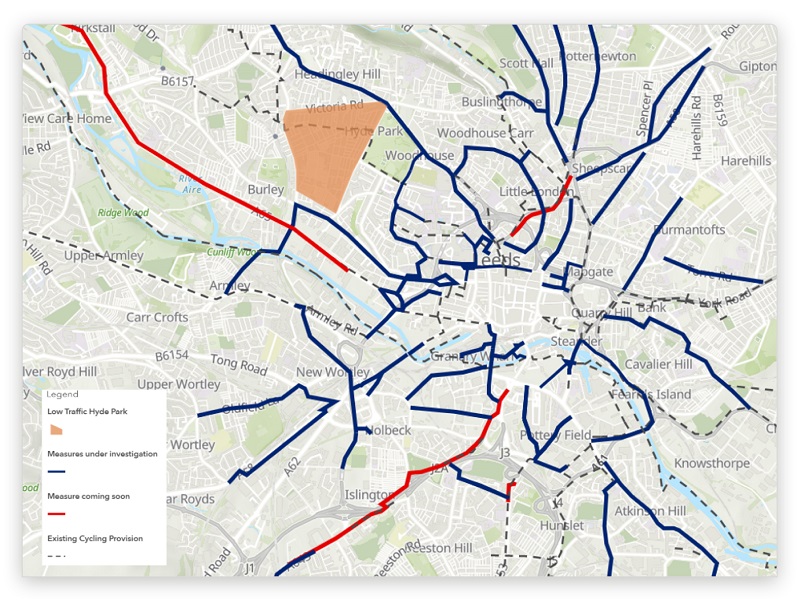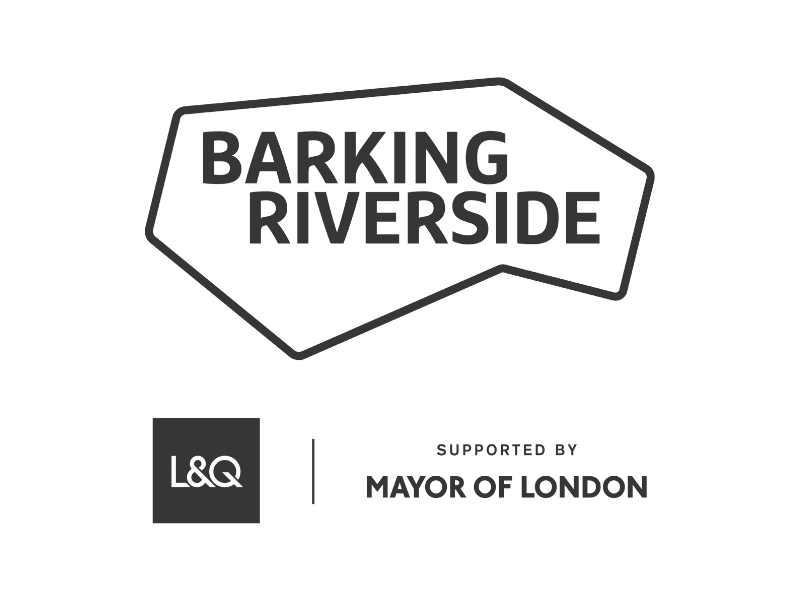Project showcase
Connecting Leeds Covid Response, Leeds - Leeds City Council with Commonplace

The greatest success of this project has been the ability to adapt, change, and respond to the dynamic needs of the community during a time of immense national and international uncertainty. Connecting Leeds is ambitious, a long-term transport strategy, but with an ability to scale and adapt that makes it dynamic and responsive to change
Who is the developer/client of the project?
Leeds City Council were the primary client, but we also worked in combination with WSP, West Yorkshire Combined Authority, Department for Transport
Describe the context of this project and how it has made a positive contribution to the urban life of the place.
This project forms part of the ‘Connecting Leeds’ transport strategy, Leeds City Council’s vision and ambition to transform travel in Leeds for those who live, work in, and visit the city. Connecting Leeds also takes strides to meet the UK’s carbon commitments: the strategy aims to create an affordable, zero-carbon network. Led by Leeds City Council and WSP, the strategy is supported through funding by the West Yorkshire Combined Authority and the Department for Transport.
The strategy has been rooted in a continuous conversation with the public since 2016, forming an ongoing dialogue about community priorities. Whilst Leeds City Council has been using Commonplace’s digital engagement technology for several years, Covid-19 brought with it new priorities and challenges.
As a result, Connecting Leeds needed to understand what temporary interventions can be put in place to make residents safer travelling to work throughout the pandemic and recovery period by maintaining social distancing. The Connecting Leeds Covid-19 Transport Response used digital engagement to resolve these issues.
What do you see as the greatest success of this project?
The greatest success of this project has been the ability to adapt, change, and respond to the dynamic needs of the community during a time of immense national and international uncertainty. Connecting Leeds is ambitious, a long-term transport strategy, but with an ability to scale and adapt that makes it dynamic and responsive to change.
As the Covid Response project shows, the project team were able to use their current transport strategy to address new challenges brought about by Covid. In order to manage these challenges, address the changing use of the city during lockdowns, and improve public health and safety, the project team were able to adapt, embrace innovative digital tools, and engage in a conversation with residents.
It is this conversation and consultation with the residents that ensured interventions were appropriate, needed, and valued by the local community. Above all, not only was this project a success in itself, it also provides a moblised community base of almost 30,000 people that feel empowered, connected, and driven to have their say on issues in their area. This is a huge benefit to the Connecting Leeds team as they progress with their longer-term transport strategy, in that they can re-engage this community to ensure the longevity and impact of future transport developments.
What were the key moves, including community consultation or other infrastructure investment, that made this intervention possible.
Community consultation was critical to the success of this project. Using Commonplace’s Community Heatmap tool, Leeds City Council asked individuals, representatives from schools, businesses and community groups to share ideas for making streets better for walking and cycling and maintaining social distancing during the Covid-19 pandemic. These could be related to anything from a dangerous pinch point that needs addressing, a new cycle route, or inspiration for creating quieter residential streets.
The reach of the engagement was impressive: the site reached over 20,000 unique visitors, who left over 29,000 contributions. These contributions were used to inform decision-making in the critical time of lockdowns and covid recovery. The success of this project can also be attributed to Leeds’ long term approach to engagement, having established a significant base of engaged Commonplace users over previous phases of the scheme.
The successful digital engagement has pronounced impacts in terms of transport planning and adapting planning during the challenging circumstance of Covid-19 pandemic. Above all, the use of a digital platform and community consultation provided a strong evidence base, gathering views from a diverse cross-section of local people to ensure the strategy is beneficial to all.
Please share any data or figures that support your entry for how this project has changed mobility, or contributed positively in an economic, social or environmental way.
Using Commonplace’s Covid-19 focused community heatmap tool, an extra 100 kilometres of segregated cycle paths, 500 bicycle parking spaces, and active travel neighbourhoods will be added to Leeds roads to make communities safer and healthier as they build back better.
This has been a significant outcome both for the community and Leeds City Council - and proves the importance of digital engagement in continuing a dialogue with the community in the most challenging of times. Ultimately, this engagement has, and continues to, improve the quality of life, health, and safety of those in Leeds through adaptable and comprehensive transport planning.
Furthermore, the Leeds Covid project takes strikes to address climate change in the area. With their climate change declaration, Leeds understands that managing and planning transport not only has local implications, but global. The active travel interventions therefore also help create a more environmentally friendly city, working towards the ambition that no one in Leeds needs a car. and global implications
The comprehensive digital engagement has enabled Leeds City Council to adapt their transport plans in the Covid circumstances. Connecting Leeds’ Covid response provides an excellent example of how to engage citizens in active travel planning digitally, and reaffirms the reach, accessibility, and power of technology to empower people to shape their cities for better.
Festival of Pineapples
24-26 February 2026
Pineapples prize giving night
April
Pineapples at Festival of Place
10 June 2026
© The Pineapples - Tweak Ltd. 124 City Road, London, EC1V 2NX. Tel: 020 3326 7238





